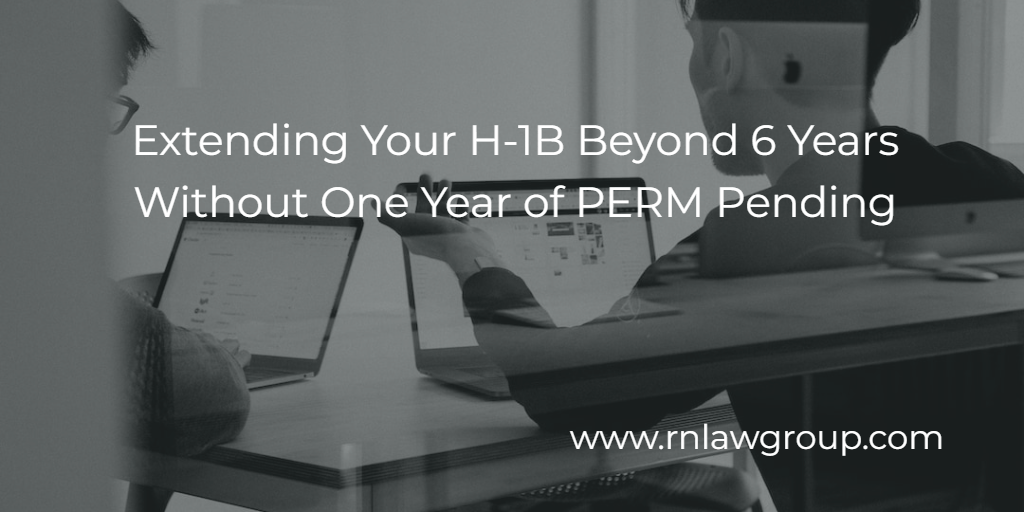
Extending Your H-1B Beyond 6 Years Without One Year of PERM Pending
In May 2005, the United States Citizenship and Immigration Services (USCIS) issued a memorandum that remains critically important for H-1B visa holders and their employers. This memo provides key guidelines for processing H-1B extensions beyond six years, as stipulated by the American Competitiveness in the Twenty-First Century Act of 2000 (AC21). A central feature of this directive is the possibility of extending H-1B visas beyond the standard six-year limit under specific conditions related to the PERM labor certification process.
Understanding the Extension Provision
The H-1B visa, widely used by skilled professionals to work in the U.S., typically has a maximum duration of six years. However, AC21 and the USCIS 2005 memo introduce provisions for extending this period under certain circumstances, particularly in relation to the PERM labor certification.
Criteria for One-Year Extension Beyond Six Years
- PERM Filing and Six-Year H-1B Limit: The memo clarifies an essential point – H-1B visa holders can request a one-year extension beyond the six-year limit if their PERM application, while not pending for a full year at the time the six-year limit is reached, will have been pending for at least 365 days by the end of that period.
- Timely Filing and Continuous Employment: The extension depends on the timely filing of the PERM application, ensuring that by the time of the six-year H-1B expiration, the PERM will have been pending for one year.
- Application Process: It is crucial for H-1B holders to file the extension application before their current H-1B status expires.
Example Scenario
- Perm Filed: April 20, 2023, and is pending.
- Current H-1B Expiry: February 20, 2024.
- 6-Year H-1B Limit (after accounting for time spent outside the USA): April 21, 2024.
- Extension Filing: Companies can file for an H-1B extension in January 2024 to extend H-1B status until April 20, 2025, based on the pending PERM.
Who Can Benefit:
- Strategic Filing: This provision offers significant relief for H-1B employees experiencing delays in their PERM process. It enables them to legally remain in the U.S. while awaiting PERM and/or I-140 petition approvals.
Conclusion
Although issued in 2005, the USCIS memo on AC21 provisions continues to provide substantial benefits, particularly in the context of extending H-1B visas beyond six years. It opens a pathway for those caught in the often lengthy PERM process, ensuring continued employment and residency in the U.S. Both employees and employers should comprehend these provisions and strategically plan their immigration and employment timelines. Seeking advice from an immigration attorney is highly recommended for navigating this process successfully and ensuring full compliance with these provisions.
By: Rahul Reddy
Rahul Reddy, a seasoned lawyer in the realm of employment-based immigration, is the founding partner of Reddy & Neumann PC. With an impressive career spanning over 28 years, he inaugurated the firm in 1997, bringing a wealth of knowledge and a unique perspective to the intricate landscape of immigration law.
Rahul’s understanding of the complexities inherent in the immigration system is vast and nuanced, making him an indispensable resource in this specialized field. This comprehensive expertise, coupled with his personal encounters with the immigration system, has imbued him with a profound empathy for his clients. Each case he undertakes is informed by this personal connection, as he understands the unique challenges and aspirations that drive individuals to navigate the immigration process.
Passionate and committed, Rahul is driven by a desire to assist others in realizing the quintessential American Dream. His mission, underpinned by years of professional experience and personal insight, remains focused on providing excellent legal support to those seeking employment-based immigration solutions.

